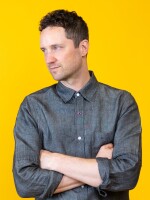Food allergies have risen in the United States over the last few decades. Research suggests that 40 years ago the prevalence of food allergies was less than 1%. But today that number is closer to 6%. But this trend is not present in all countries — and what people are allergic to varies globally. Today, we dive into the complex world of food allergies with Dr. Waheeda Samady. She's the Director of Clinical Research at Northwestern University's Center for Food Allergy and Asthma Research.
Have a food science question? Email us at shortwave@npr.org.
Listen to every episode of Short Wave sponsor-free and support our work at NPR by signing up for Short Wave+ at plus.npr.org/shortwave.
Listen to Short Wave on Spotify and Apple Podcasts.
This episode was produced by Berly McCoy, edited by Rebecca Ramirez and fact checked by Anil Oza. The audio engineer was Robert Rodriguez.
Copyright 2025 NPR









